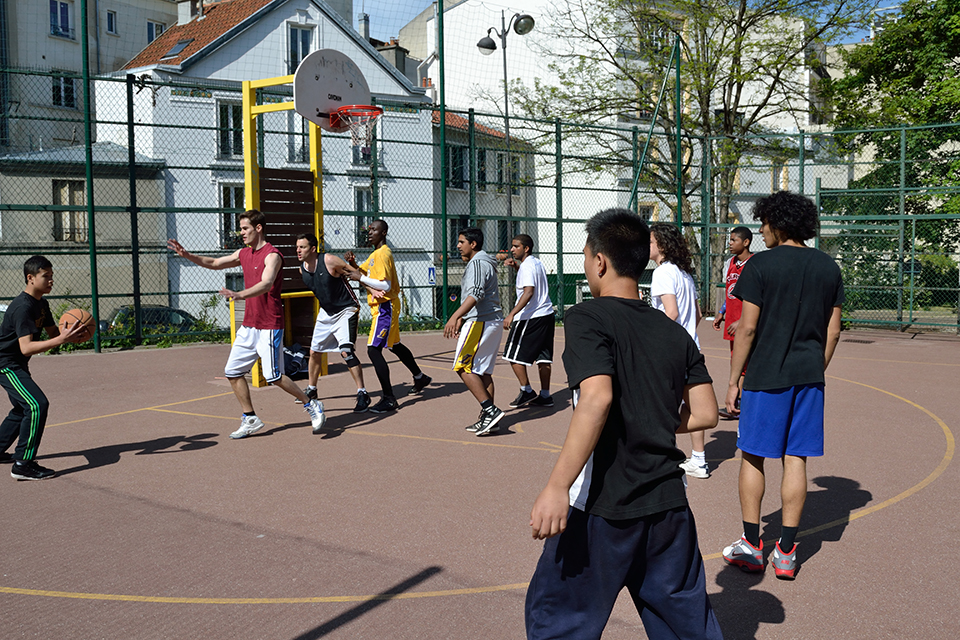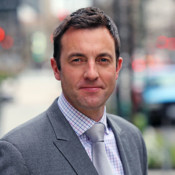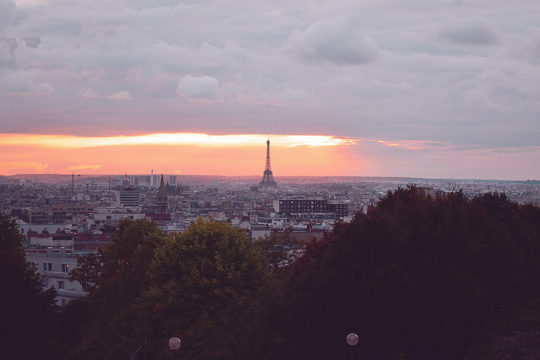CCTV America reporter Owen Fairclough shares his thoughts on on the recent terrorist attacks in Paris. He had previously lived in Paris for six years.
For the second time in less than a year, I am thousands of miles away reporting on another atrocity in the city I left behind for Washington, with the same unbearable pangs: An even deadlier attack on my home and once again I am not there to stand with my friends.

I have many journalist friends who socialize at and around the Cambodian restaurant and Bataclan music venue; I’ve been to both several times. Like anyone else with a connection to the city, I scoured social media to confirm that anyone I know in Paris was safe.
Yet the group I keep thinking about are the basketball players with whom I spent hours and hours in pick-up games. We would spend whole days on an outdoor court yards from the best view of Paris over the Parc de Belleville – infinitely better than the crowded tourist trap at the Sacré Coeur.
The Bataclan and Petit Cambodge restaurant were 20 minutes away on foot, via high-rise housing projects standing over a rapidly gentrifying neighborhood.
To the bobo (bourgeois bohemians) gentrifiers like me enjoying a drink outside the café opposite the Luquet basketball court, the scene would be unremarkable: Parisian teenagers and young adults shooting hoops and trash talking: “Si je marque 3 points, ta mère doit me payer un bon couscous.” (“If I hit this three-pointer, your mum owes me a nice couscous.”)
But here was a full palette of immigration: French sons and daughters with roots in Cap Vert, Mauritius, Cambodia, Cameroon, Cap Vert, China, Egypt, Philippines, Senegal, Serbia, Vietnam and any number of former French colonies. Then there was me: a British WASP approaching middle age, a bit lumbering and a bit off the pace to guard kids half my size or worse, stop them slam-dunking on me.

Photo by Owen Fairclough.
They didn’t care where I was from and never asked. They cared only about playing and talking basketball and they accepted an immigrant without question. I’d never felt more at home or less conspicuous as a foreigner. It was the kind of integration that never seems to get its due in Paris: the divisions between predominantly white Paris and the infamous northern banlieues or suburbs filled with predominantly immigrant families feeds a more conventional narrative – certainly to those outside France.
Much of the inquiry is focusing on the theory that one of the attackers made his way to Europe via Greece in the recent surge of migrants. Whether this proves accurate or not won’t matter to the U.S. Republican right or French National Front; there are easy anti-immigrant points to score.
![DSC_2105[2] Photo by Owen Fairclough.](https://america.cgtn.com/wp-content/uploads/2015/11/DSC_21052.jpg)
Photo by Owen Fairclough.
But my Paris, my corner of the 20th district, was a hoop dream: a magical mash-up of cultures and creeds all competing to get a game on a strip of cracked concrete – and abusing the British guy’s mother. I haven’t kept regularly in touch with them – it wasn’t that kind of friendship – but I know they’re safe and still playing.
Les basketteurs de Luquet: I’ll see you back on court one day.
 CGTN America
CGTN America
 Photo by Owen Fairclough.
Photo by Owen Fairclough.
